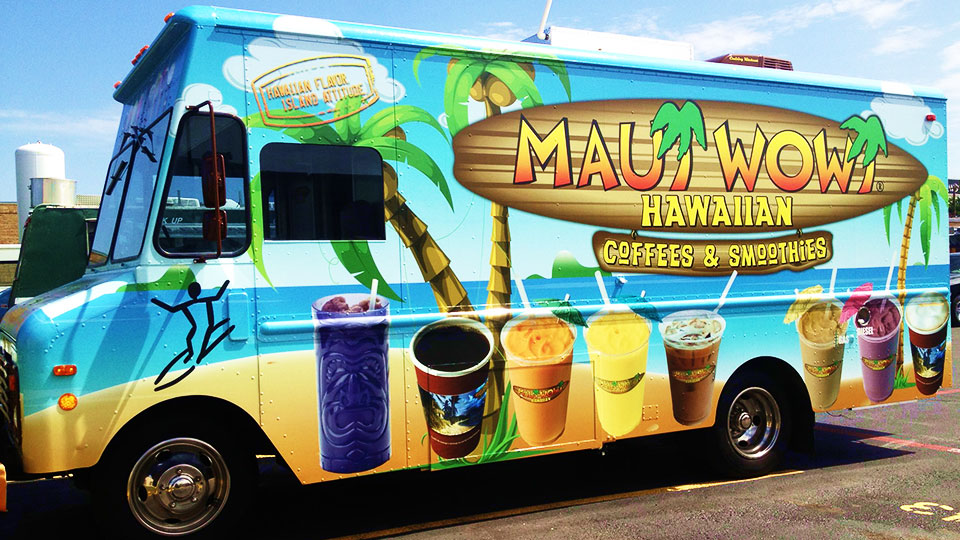The food truck industry is booming and shows no signs of slowing. Food Truck Nation says it’s a $2.7 billion industry — that’s a 300 percent revenue increase in three years, which translates to more than seven percent growth, year-over-year.
It’s easy to see why IBISWorld calls the market “one of the best-performing segments in the broader food-service sector.” Boy, we’ve come a long way since 2008, when food trucks were nearly unheard-of. Don’t you think?
The Benefits of Owning a Food Truck
Nowadays, there’s a fleet of food trucks at most major events, locally and nationwide. There’s no doubt today’s generation loves unconventional (and perfectly instagramable) cuisine. Not to mention, Millennials are also known as the “food truck generation,” and they can’t get enough of this urban way of eating. It’s clear the trend is here to stay.
The hype is so powerful, you can now find parking lots filled with food truck options or indoor food truck experiences. But do you know the behind-the-scenes reason food trucks started growing in popularity?
One significant reason is they have a comparatively low initial capital investment compared to that of a brick-and-mortar restaurant (which can mean less risk, too). Statistic Brain says start-up costs usually run in the $100,000 range or less. The truck itself can even serve as a mobile billboard, so you’ll automatically save on advertising.
The industry is also a great place to test your product and market location before opening your concept in the brick-and-mortar form of a restaurant. Operators who own both say 30 percent of their revenue comes from attending food truck festivals and similar events. On the other hand, some food truck owners simply enjoy the freedom of owning a business on the road.
The Power of Mobility
Mobility allows food business owners the opportunity to constantly grow their following. It also encourages social media engagement because followers want to stay on top of the business’ location. It’s the reason why in this day and age, we’re seeing more and more mobile food businesses emerge.
There are even food truck franchises. That’s when a company grants access to an individual or group, allowing them the right to use their branding, operational systems, intellectual property, trademarks and more to start their own business. That means franchising a food truck business comes with built-in brand recognition and a customer base willing to follow them wherever they go.
One franchise that understands the power of mobility is Maui Wowi®. We serve a healthy alternative to sugary, fat-laden foods by serving all-natural, fresh-fruit smoothies and Hawaiian coffees. Even better, our company was built on the premise that business should be fun, flexible and mobile. That’s why we offer three mobile business models:
1) Ka’anapali Cart
Our Ka’anapali Cart option, also known as the K-Cart, is our most sought-after business model for a reason — it’s flexible. You can utilize it at both indoor and outdoor events. Claim a full-time space like a sports area, or run your business on a part-time basis, traveling from event to event (fundraisers, concerts, fairs, expos, etc.)
2) Concession Trailer
The Maui Wowi® Concession Trailer is built specifically for outdoor use and is equipped with two smoothie stations and an area for brewing. The trailer is bigger than our one-of-a-kind K-carts but smaller than our full-size food truck.
3) Food Truck
Speaking of which, our Food Truck option is the newest addition to our franchise family. This paradise on wheels is the life of every party. It’s extremely spacious and is equipped with all the smoothie essentials and a full coffee espresso bar.
If you want to get a piece of the food truck trend action, consider Maui Wowi®. We take care of our franchisees and people love us.
©2018 Kahala Franchising, L.L.C. All rights reserved. All other trademarks referenced are property of their respective owners. The information provided herein is for informational purposes only and is not intended as an offer to sell, or the solicitation of an offer to buy, a franchise; nor is it directed to the residents of any particular jurisdiction within the U.S. or elsewhere. The following states currently regulate the offer and sale of franchises: CA, HI, IL, IN, MD, MI, MN, NY, ND, RI, SD, VA, WA, and WI. If you are a resident of one of these states, or of a jurisdiction that has similar requirements, we will not offer you a franchise until we have completed the applicable registration or obtained the exemption from registration, and completed the applicable disclosure requirements. Regardless of what state you reside in, an offering can only be made by a franchise disclosure document.

